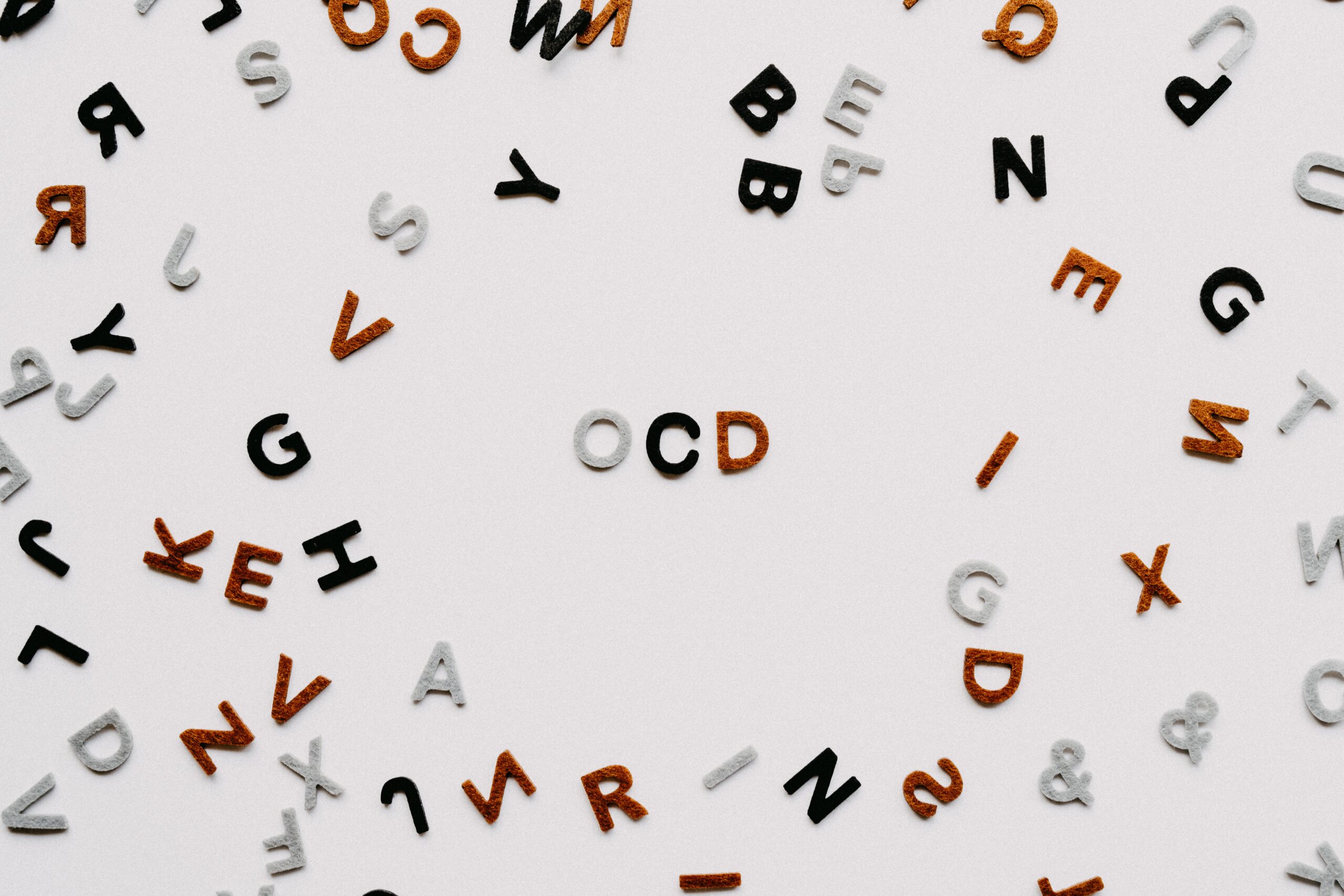Understand OCD Symptoms And Treatment
- Do you think you might have OCD symptoms?
- Have you ever had terrible thoughts that scared you?
- Do you feel upset when things are misplaced or out of order?
- Do you worry a lot about things over and over again?
When someone has Obsessive Compulsive Disorder (OCD), their lives are greatly affected by scenarios like this. If you feel that you or a loved one struggle with OCD, read to learn more about the OCD symptoms and how to treat OCD!
What is OCD?
OCD is a mental disorder that causes someone to have thoughts that are intrusive and repetitive. These thoughts can make someone very uncomfortable because they are unwanted. These repetitive, undesirable thoughts make up the “obsession” part of OCD. In order to try and put an end to these obsessions, the person will engage in certain actions repetitively – this is the “compulsion” part of OCD.
OCD can be very disruptive to someone’s daily life and overall well-being. This is why it is important to treat OCD in an impactful way.
What causes OCD?
OCD can be caused by a few different reasons. It can be due to genetic factors or hereditary links. Research shows when people have a family member with OCD, they have increased chances of developing this disorder too.
Many times while growing up, kids may see their parents or older family members living with OCD. For example, if a younger cousin sees their older cousin knock on wood every time they have a “bad” thought, the child might start to pick up on this behavior and learn to do the same thing.
What Are OCD Symptoms?
When someone has OCD, there are many symptoms that can present. Symptoms of this disorder can be in the form or obsessions and compulsions.
OCD Symptoms – Obsessions
Getting Sick or Facing Germs
Many people with OCD are fear getting sick or being exposed to germs. These people often worry about getting transmittable diseases and becoming “contaminated.”
People can also feel contaminated when they feel like they have germs all over them or are dirty. For example, someone with OCD may feel like their hands touched a dirty door knob and excessively wash their hands in fear of being exposed to other people’s germs.
The pandemic has made these symptoms and fears worse in many people.
Not Having Control of Themselves
People with OCD might also be afraid of losing control. These people are terrified of hurting themselves or others. For example, someone who is driving with a friend in the car may have intrusive thoughts about losing control and crashing the vehicle. People with OCD do not want to have these harmful thoughts but cannot control it – this is very upsetting and can cause the person a lot of guilt and shame.
Some more of these fears include not being able to stop themselves from blurting out something offensive or stealing from a store.
Causing Harm
Similar to the idea of losing control, people with OCD may also be afraid that they will cause harm to themselves or others. People with this obsession might be afraid to cause harm directly (e.g. causing a fire) or accidentally (e.g. accidentally leaving a curling iron plugged in or failing to check if the oven is off).
Perfection
Perfection is what often comes to mind when people think of OCD. People who struggle with these type of thoughts can obsess over getting things “just right” and experience distress when this perfection does not happen. People with this type of OCD are often seen straightening their frames on the wall, lining their shoes up on the floor, color coordinating their clothes etc.
Some people may just think that these are the habits of someone who is just very organized, but it is much more than that. When people deal with perfection OCD, they feel great distress when things seem out of place or messy. This can affect the way they live their life and take up many hours of the day worrying over this obsession.
Unwanted Sexual Thoughts
These can be some of the most upsetting thoughts someone with OCD can have. These intrusive thoughts can be about violent or forbidden sexual acts and cause the person much shame.
Religious Obsessions
People with OCD can also obsess over their religion or spiritual beliefs. Many people with this OCD obsession worry deeply about offending their god and doing something that is unforgivable in the eyes of their religion. They also can also constantly obsess over doing the right thing and their morality.
OCD Symptoms – Compulsions
Washing and Cleansing
People with OCD who obsess over contamination and germs, want to make sure they are always clean. To achieve this cleanliness, the person may shower multiple times and day and wash their hands excessively.
Going Over Things
Constantly checking things over and over again is a big part of OCD. People with this obsession are afraid of making horrible mistakes and want to check that they did not mess up. Many times, these check have to do with safety – e.g. a person will check many times if a door is locked, their house alarm is on, or that they shut the oven.
Checking can also be used to constantly evaluate your thoughts. For example, people with harm obsessions may constantly go over their thoughts to “make sure” they really didn’t want to harm their loves one.
If someone fears losing control, they may constantly scroll and check their social media pages to make sure they didn’t post anything offensive.
Repeating
Many people with this disorder have to make sure things feel “just right.” This can affect them when they are doing things like reading or speaking. For example, someone with OCD may have to read a line in a book over and over again because they do not think they understood it as fully as they should have
People can also feel like they need to repeat body movements until it feels right to them. Someone with OCD, for example, may blink many times in a row until they do one that makes them feel content.
Mental and Other Compulsions
OCD can reach every corner of someone’s life and show up in many different, even seemingly random ways, ways. For example, people with OCD tend to count until they are able to end at safe or good numbers “undo or cancel” bad words.
This constant need to do things until they feel “just right” or until the person feels safe is draining. The fear of certain things (like numbers, places, situations) can even prevent people from leaving their house or socializing.
What Do I do if I have OCD?
If you have OCD, know that you are not alone. OCD can cause people to feel isolated in their thoughts and feel like no one else could ever go through the same thing. Due to their scary, intrusive thoughts, many OCD sufferers feel shame over what they think about. This shame is very hard to deal with and can cause the person to feel awful about themselves and who they are.
Many times, we worry most about what is most important to us. So if you are someone who loves your family a lot, your OCD might be centered around threats to their safety and well-being. If you love your pet, you may fear something horrible will happen to them so you constantly check that you will not do anything to cause them pain.
Try to remember that you are not defined by these thoughts. As much as you hate these ideas that appear in your head, know that it is the disorder speaking.
Treatment for OCD
Getting treatment for OCD is very important. OCD is a very challenging disorder to live with and the earlier you can learn to deal with these thoughts, the better.
Exposure and Response Prevention Therapy (ERP)
ERP is highly effective when treating OCD. It is a type of Cognitive Behavioral Therapy (CBT). CBT helps people challenge the thoughts they have and work to rewire them.
When people have OCD, they try their best to avoid the unsettling thoughts or obsessions by doing compulsions. Exposure therapy helps people face these fears head on, face-to-face. ERP helps someone with OCD realize that they can survive a horrible thought without having to complete a ritual or behavior to fix it. They will also see that they can safely get through life without relying on their compulsions.
Acceptance and Commitment Therapy (ACT)
Although ERP is known to be very useful for people with OCD, ACT may help, as well. This therapy type can be useful for people to have alongside their CBT/ERP or if ERP does not work for them. ACT helps people experience their thoughts and learn to live with them in a calmer, more accepting way. Through ACT, when someone has a thought caused by their OCD, they will be able to understand them more as just fleeting thought that they do not need to think about or respond to.
This can be hard for someone who has OCD to imagine, but once they stop trying to avoid their thoughts they will start to see the thoughts for what they truly are…just thoughts. Thoughts that do not and will not define who they are or who they want to be!
Your OCD symptoms can NOT define you
Your OCD does not define who you are. The nature of intrusive thoughts can make people with OCD horrible about themselves. Remember that you are not bad – you are someone who is dealing with a mental disorder and fighting hard everyday to rise above it. You are very strong and should be proud of yourself for doing so. Don’t let your mind fool you – you deserve happiness and inner peace.
Your thoughts may scare you or you may fear speaking with a therapist because you are embarrassed. Know that a therapist is a trained professional who’s job is not to judge you but to help and support you! There are so many people who have OCD and whatever you are afraid of telling your therapist, they have probably heard many times before.
Finding the right therapist for you is key. When looking for a therapist, don’t be afraid to ask questions about what kind of treatment you would receive. Also, do not feel like you have to stay with a therapist that you are not happy with. There are so many therapists out there that can offer you support that fits your needs!
Our team at Mind Connections can help you with your OCD. Our specialists can help you to build coping strategies and diminish the influence of OCD. Call us free for 15 minutes or schedule your online video therapy to get evaluation and the best treatment for OCD.
Content Creator, Victoria Gallo; Reviewed by Dr. June Cao





